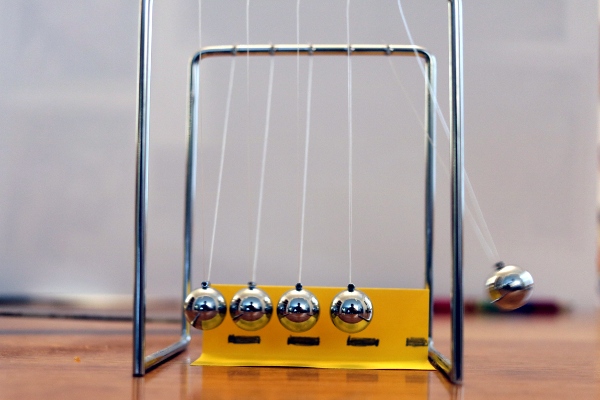When we were in DC back in July, SteelyKid purchased a toy Newton's cradle. And I already owned a 1000fps video camera, so it was inevitable that the one would end up in front of the other...
I spent a while this afternoon making high-speed video of the toy clicking back and forth, but didn't have time to write up the analysis. And I'm leaving wayyy too early this morning to fly to California for a few days (giving a couple of talks in Sacramento, then visiting my sister for a bit), so you'll have to settle for this teaser image for now:
Well, OK, here's the video, too:
But you'll have to wait to see the detailed analysis, and that's that.
I am not 100% certain I'll get time to edit and post photos while I'm on the road, but I'm taking my DSLR with me, and if I can't post while I'm there, I'll catch up when I get back next week.


Since I worked with Newton's Cradles for my grad school work, two things you should definitely know for your analysis:
1. Don't try and model the sphere contact like springs. The force grows like $F = kx^{3/2}$, and so is completely nonlinearizable around 0 (barely touching). If you know any folks in MechE, they can probably tell you about the Hertz contact law, and I've seen surprisingly many people who do work on this thing (granular dynamics) not know about this.
2. One ball in at V_0 does not equate to one ball out at V_0. It always spalls, which is why the system settles down to everything moving in sync by the end. You can pretty clearly see the spalling in your video, and can confirm this to yourself by integrating the equations of motion (with the Hertz law) on a computer.